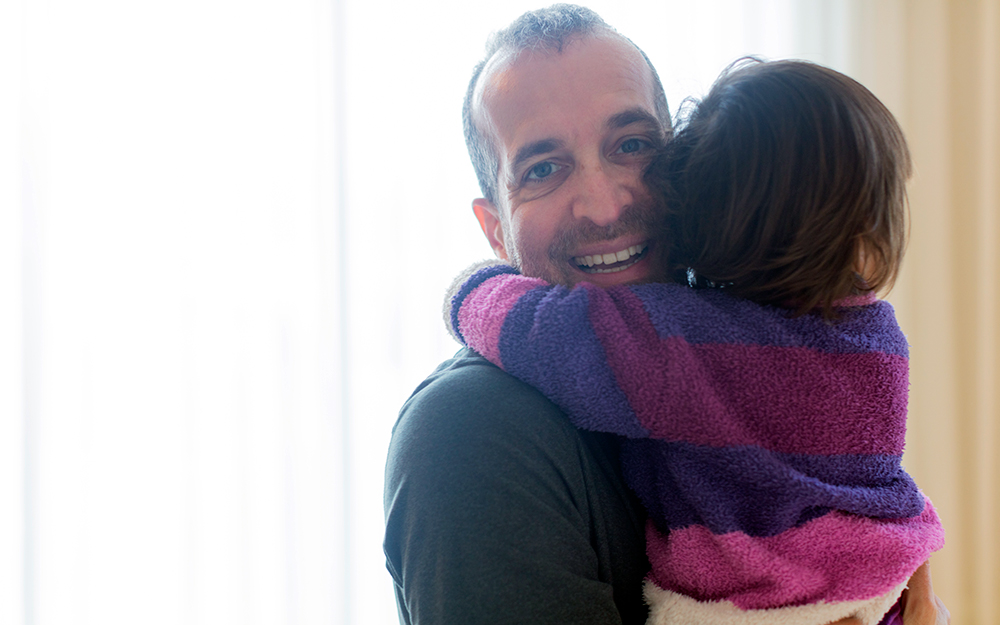Why Accreditation Matters in Choosing a Congenital Heart Program
Date
September 8, 2023

Date
September 8, 2023
Credits
Medical providers featured in this article

In Brief
{{cta-block}}
Congenital heart conditions might be addressed in a baby’s first year of life, or even before they’re born. But “addressed” rarely means completely cured. Re-intervention over a lifetime is more often the rule than the exception.
Adult congenital heart disease is a web of complex conditions that require care throughout a person’s life—preferably from specialists who understand a patient’s unique cardiac history and diagnosis and are keenly aware symptoms or changes that may require additional evaluation.
“We’re better than ever at treating these conditions,” said Rose Tompkins, MD, associate director of the Adult Congenital Heart Program at the Smidt Heart Institute. “An increasing number of young adults are now living with congenital heart disease. We care for them as well as older individuals who may be diagnosed with a congenital heart defect for the first time late in life.”
“Accreditation is really a way to highlight you have found a program that has invested the time and resources to ensure quality and comprehensive care for your condition.”
The Guerin Family Congenital Heart Program recently earned accreditation from the Adult Congenital Heart Association, becoming one of only six programs in California and 50 in the nation to be awarded this distinction. Centers with this designation are associated with better outcomes for patients and employ experts who understand the complexities of the many different kinds of adult congenital heart defects and stay informed of developments in this rapidly growing area of medicine.
“Accreditation is really a way to highlight you have found a program that has invested the time and resources to ensure quality and comprehensive care for your condition,” Tompkins said.
A Young Field in Medicine
One in 100 babies is born with a heart that didn’t form correctly and will require specialized care for a lifetime. Congenital heart defects include structural problems, such as malformed heart valves, arteries that restrict blood flow, or a hole in the wall of the heart.
Advances in congenital heart surgery and pediatric cardiology have resulted in a survival rate into adulthood of more than 90%—a relatively new development.
As a result of this remarkable achievement, there are more adults than children living with congenital heart disease, and this number is only expected to increase as patients are now surviving well into older ages. This has led to a paradigm shift. Congenital heart disease is no longer just a pediatric condition; it now requires doctors for adults to engage in specialized training.
"It's important for patients to know that this is a relatively new and evolving field, and that this level of care is now available so they can advocate for themselves to ensure they are at a center with the expertise they deserve," Tompkins said.
Doctors could earn board certification in this specialty only recently—beginning in 2015.
"We truly see a broad spectrum of patients," Tompkins said. "Patients who may be facing challenges of acquired medical conditions that can be complicated by their underlying congenital heart condition, for example."
Patients and their parents who were transitioning out of pediatric care historically were not being counseled that they needed lifelong cardiology care since this was not a specialty that formally existed. This growing need led to the advocacy of the Adult Congenital Heart Association, in partnership with supporting national medical societies, to develop accreditation of centers as Comprehensive Care Centers in Adult Congenital Heart Disease, with the first programs being accredited in 2017.
“Given how relatively new this all is, getting the messaging out to patients, their families and providers is critical,” Tompkins said.
Why Accreditation Matters
Accreditation has been a crucial step in establishing standards of care and cultivating understanding of how to best treat individuals with congenital heart disease as they age. Patient-centered care and ensuring healthy lifestyle and preventive cardiology care are key. Older adults often deal with multiple health problems such as diabetes, acquired cardiovascular disease or cancer. Such patients benefit from being managed by an expert well-versed in their heart condition who can help coordinate their care and optimize health outcomes. It’s also essential at other stages of life, such as when planning to have children.
Accreditation is a rigorous process, with specific requirements to ensure programs have access to a multidisciplinary team with adult congenital heart expertise, specialized equipment and medical services, as well as demonstration of best practices to ensure the highest-quality care of these patients.
The Adult Congenital Heart Program submitted documentation demonstrating it embraced all 50 criteria for accreditation, which the Adult Congenital Heart Association validated during a site visit.
A study published in the Journal of the American College of Cardiology found that treatment at an ACHA accredited center is associated with lower rates of mortality before heart transplantation. Accreditation is now a factor U.S. News & World Report considers in its annual hospital rankings and reviews.
The Guerin Family Congenital Heart Program treats patients of all ages. Some are helped by the program before they’re born, and care is available over the course of a patient’s lifetime. No patient “ages out” of the program, as there are fetal cardiology, pediatric cardiology and adult congenital cardiology experts all working together under the same umbrella—a truly comprehensive congenital heart program.
“What sets us apart from seeing a general adult cardiologist,” said Tompkins, “is that we have the multidisciplinary expertise and resources to provide care for even the most complex adult congenital heart cases.”
A Grassroots Movement in Congenital Heart Care
The Adult Congenital Heart Association is a premier medical organization—but it’s unique in that it was founded by individuals and families living with congenital heart conditions. They host professional conferences to promote and share medical research, and they’ve worked closely with leading cardiology experts to craft standards for care and accreditation. The goal of the accreditation program is to standardize and advance the quality of care outcomes for adult congenital heart disease.
“They are a grassroots organization that is for the patients and by the patients,” Tompkins said. “They’re an incredible organization. I often point my patients toward their website to learn more about their condition, rather than going down the Google rabbit hole, because they have done an amazing job creating accessible educational resources as well as a supportive community.”
The accreditation program began six years ago. The process of creating accreditation standards was critical to the congenital heart community because it gave patients and professionals a platform to identify best practices and define what a comprehensive program includes.
“It demonstrates that there is an investment in the congenital heart community,” Tompkins said. “As physicians and directors of these programs, we want to do this care right. We want to serve the needs of this community. That patients themselves have been so important in developing these standards makes achieving this accreditation especially meaningful.”





